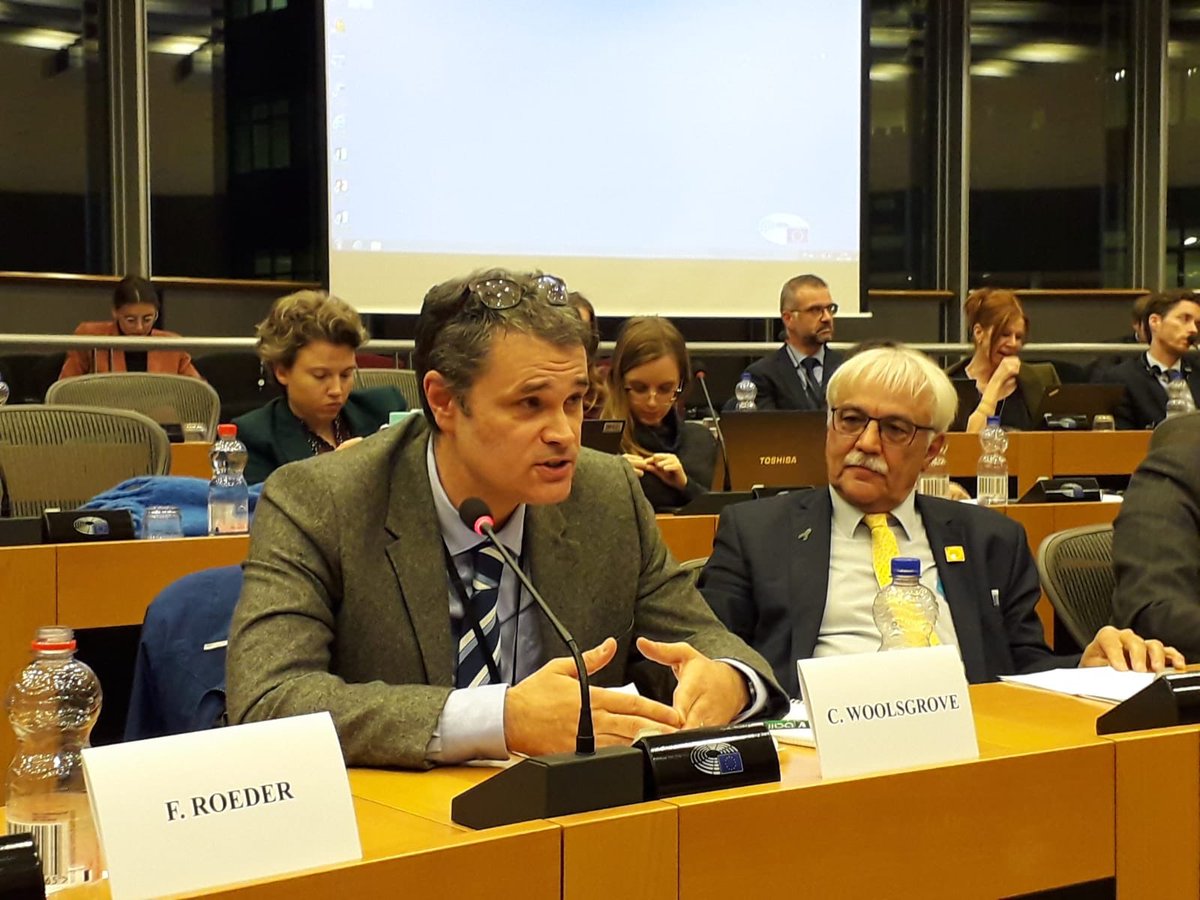
European Parliament debates the benefits of vehicle safety regulations with stakeholders
ECF spoke at the European Parliament IMCO committee workshop hearing to put the case for mandating a range of vehicle safety standards along with many other stakeholders.
The European Parliament IMCO committee organised a workshop to discuss the General Safety Regulations, which is currently being updated. This legislation presecribes the vehicle safety technologies and measures that manufacturers must include in their vehicles. ECF has been involved in the process over the past three years or so and the process is now coming to an end. The European Commission brought out an excellent proposal[1] over summer which included
- An intervening and assisting Intelligent Speed Assistance – this system warns the driver when he/she is over the speed limit. It is essential that this system is one that assists the driver in the driving task by providing haptic feedback through the accelerator (through a resistance and feedback on the pedal) rather than through an annoying beep or flash on the dashboard.
- Automatic Emergency Braking for cars and HGVs – AEB for pedestrians and cyclists on all new vehicles would be an excellent tool for reducing impacts on the roads. However its effectiveness is hugely increased when used in conjunction with an assisting ISA system.
- Better Direct Vision for HGVs – this is something that ECF has been working no for a long time. HGVs, if they are to enter urban areas must be fit for that purpose. A very high driving position and tiny ineffective windscreen/side windows are not sufficient for detecting cyclists and pedestrians in and around the vision of the HGV cab. We would call on Member States to reduce the long lead in time for this technology and to implement better direct vision as soon as possible
- There are als a raft of other excellent measures including better bonnet design/testing, Event Data Recorders, tyre pressure monitors and others
It has been estimated that if this package were implemented it would reduce fatalities on European roads by 25,000 over a 15-year period, Intelligent Speed Assistance on its own could cut road crashes by 30% and deaths by 20%! This is seen as a package of measures working as a system, ISA reduces speed, AEB acts as an emergency stop if a crash is imminent, and the passive safety design of the vehicle mitigates the impact if it is unavoidable. Similarly, for larger vehicles, a Direct Vision would allow drivers to clearly through the windscreen and side of the truck, eliminating as much as possible the blind spot, while the turning assist helps the driver to overcome any remaining blind spot, errors, or misjudgements.
One of the most important measures include an intervening/assisting Intelligent Speed Assistance. On its own this technology would reduce the number of fatalities by around 20%. It also acts as a multiplier on the effectiveness on all the other systems including AEB and the passive safety systems by reducing the speed at which they are activated. It would also mean that vehicles would be using the infrastructure as it was designed to be used. There is also evidence of a reduction in air pollution, reduction in CO2 emissions, and improves traffic management.
And the technology is mature enough now. There are cars on the market that currently have an intervening ISA (Volvo XC60 most recently). The producers of the equipment that would track the speed limit signs claim that 95% or signs across the EU are readable now! However, there have been attempts by industry representatives to undermine this systems approach, and ECF signed a joint letter with other organisations warning MEPs of this [2] and to stop cherrypicking technologies such as AEB as being the only technology necessary. It seems that the politicians in the instistutions are listeing to us and have good initial reports that broadly support the opinion that an intervening ISA is crucial to all the other safety systems.
You can see ECF's contribution to the Parliament debate here http://www.europarl.europa.eu/streaming/?event=20181129-1500-COMMITTEE-IMCO
With regards to the latest developments in the European Institutions?
- As previously mentioned, the Commission brought out an excellent report which mandated all those safety measures[3]
- The European Parliament brought out an excellent draft report that supported the main body of the Commission report[4]
- The Council has also brought out a good report in their General Approach (final position), also broadly supporting the main body of the Comission report [5]
Next steps are that the rest of the MEPs in the IMCO parlimanetary committee have to vote/amend the current parliament draft report (final committee vote in February) before entering final negotiations with the Council (member states); and we may get back to you on supporting your politicians to vote for these crucial lifesaving measures. However, if you would like to make your views known now to your MEP you can find them here
http://www.europarl.europa.eu/meps/en/search/advanced
- Enter your country
- Enter Committee in Political bodies
- Enter Internal Market and Consumer Protection in Committees or Delegations
And voila you have your MEP.
Urge your MEP to support an assisting/intervening Intelligent Speed Assistance that provides feedback through the accelerator pedal, and to shorten the lead in times of the Direct Vision standard for trucks, and to support the Commission proposal in general.
[2] https://etsc.eu/letter-aceas-attempts-to-weaken-the-european-commissions...
Contact the author
Recent news!
Upcoming events
Contact Us
Avenue des Arts, 7-8
Postal address: Rue de la Charité, 22
1210 Brussels, Belgium









